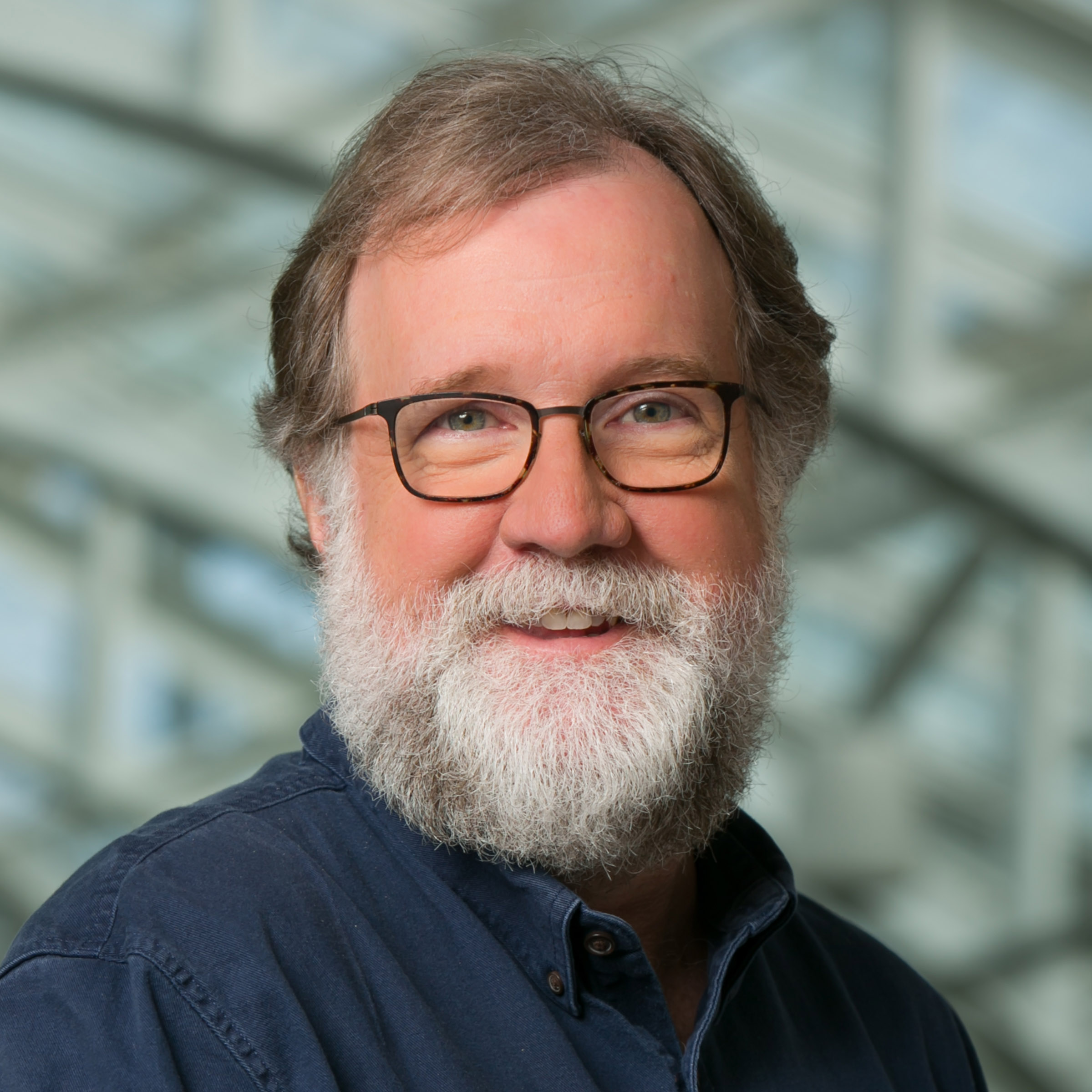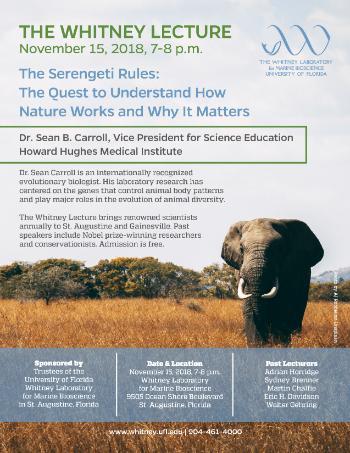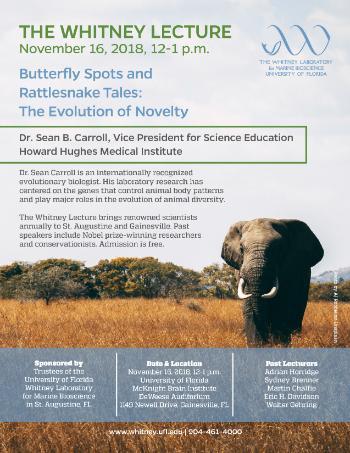 The Whitney Laboratory for Marine Bioscience
The Whitney Laboratory for Marine Bioscience

The Whitney Lecture, an annual science event hosted by the University of Florida Whitney Laboratory for Marine Bioscience, brings renowned scientists to St. Augustine and Gainesville to share significant research and contributions to society. This year’s topic took a deep look at the discoveries of science and how simple but important questions matter for human health and the health of the planet. Sean Carroll, vice president for science education at the Howard Hughes Medical Institute as well as a noted science writer and popular author, discussed his latest book titled “The Serengeti Rules: The Quest to Understand How Nature Works and Why it Matters,” which looks at clues to how nature knows what to do. For example, he studies how nature produces the right number of zebras and lions in the African savanna and how our body knows to produce the right number of cells in our organs. Carroll is interested in these and other key questions of how nature works. The St. Augustine lecture was scheduled for Nov. 15 at 7 p.m. in the Whitney Laboratory’s Lohman Auditorium. It was free and open to the public. The Gainesville lecture was scheduled for Nov. 16, 2018, at noon at the University of Florida McKnight Brain Institute DeWeese Auditorium.
In addition to his scientific research, Carroll is an acclaimed author and has penned “Brave Genius: A Scientist, A Philosopher, and Their Daring Adventures from the French Resistance to the Nobel Prize.” His book “Remarkable Creatures: Epic Adventures in the Search for the Origins of Species,” was a finalist for the National Book Award. He also authored a regular feature in The New York Times titled “Remarkable Creatures.” Carroll is also the architect and executive director of the Howard Hughes Medical Institute’s Tangled Studios, which has produced PBS, Smithsonian and Nova specials, including the Emmy winning “Your Inner Fish,” as well as Amazon Adventure (IMAX) and The Farthest, a PBS series that chronicled the epic Voyager mission to outer planets.
His internationally known research focuses on the genes that control animal body patterns that play major roles in the evolution of animal diversity. He has received the Benjamin Franklin Medal in Life Sciences, is a member of the National Academy of Sciences and is a Fellow of the American Academy of Arts and Sciences. In addition to his scientific research and commitment to public science communication, he heads the Howard Hughes Medical Institute’s Science Education Division, the largest private supporter of science education activities in the United States.
Past speakers of The Whitney Lecture have included Nobel prize-winning researchers as well as artists and conservationists such as Sydney Brenner, Martin Chalfie, Eric Davidson, Walter Gehring, Rodolfo Llinas, Erwin Neher, Adrian Horridge, Carl Safina and Roger Tsein.
Photo of Dr. Carroll by Hadar Goren Photography

